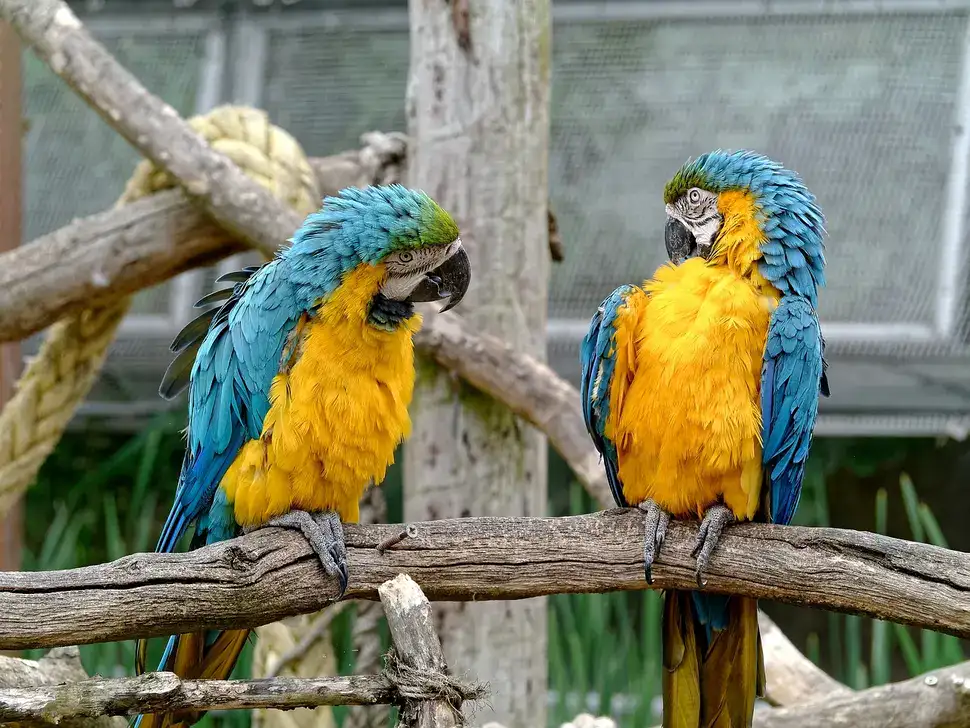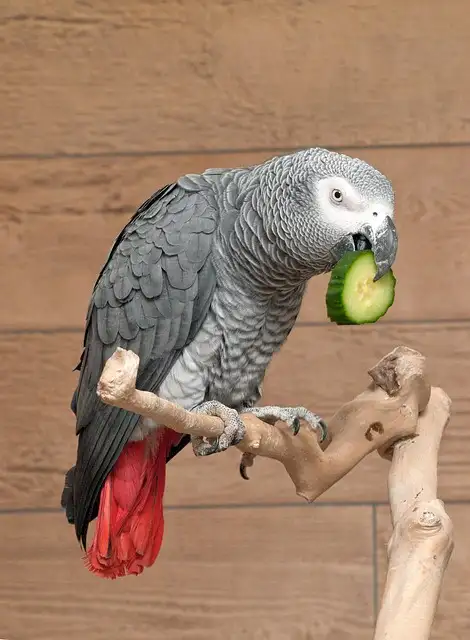Birds That Talk and How to Train Them

It’s not just the parrot species that can talk, there are many other types of birds that are capable of learning to speak.

While some may never say more than a few words, others can learn an impressive vocabulary. If you’re interested in which birds can talk, how they talk, or teaching your pet bird to talk, here are a few tips to get you started.
The Difference Between a Talking Bird and a Regular Bird
Birds are able to mimic sounds, including human speech. The most common speaking birds in the world are talking parrots, which is no surprise given that parrots make up the most traded pet birds globally and have been made famous in books and movies.
Some other birds that are known for their talking abilities include the Lovebird, African Grey, and Quaker Parrots.
Not all birds can talk, but many species are capable of learning to mimic human speech. Parrots and mynahs are among the most famous talking birds, but crows, ravens, and magpies are also known for their ability to imitate sounds. Scientists believe that birds learn to talk by imitating the sounds they hear around them.
Why Can Birds Talk and Not Other Animals?
The ability of birds to talk has long fascinated humans. While other animals can make sounds, only birds can produce true speech. There are a number of reasons for this, including the bird’s anatomy and the way in which their brains process information.
Additionally, some birds are able to mimic human speech, which allows them to communicate with us directly. While most birds cannot talk, there are a few species that can be trained to say simple words and phrases. These talking birds are a source of entertainment and companionship for many people.
How Do Birds Talk Without Vocal Cords?
Birds are able to talk without vocal cords by using a syrinx, which is located at the base of their trachea. The syrinx is able to produce a wide range of sounds, depending on the bird species.
Some birds, such as parrots, are able to mimic human speech. Other birds, such as canaries, are able to sing complex songs. Birds that are able to talk or sing usually have to be trained to do so.
The Joys of Having a Talking Bird
There are many joys to having a talking bird. First, it’s entertaining to hear them talk. They can say a variety of things, from simple phrases to more complicated sentences.
It’s also fun to watch them mimic the sounds they hear.
Additionally, talking birds can be trained to do tricks, which can be entertaining for both you and your bird.
Finally, having a talking bird can help you feel less alone, as they provide companionship.
If you’re considering getting a talking bird, there are a few things you should know. First, not all birds can learn to talk. Second, even birds that can talk may not talk unless they are properly trained.
If you’re interested in having a talking bird, do some research to find the right bird for you, and then get started on training.
Here Are Some of the Best Talking Bird Species
There are a variety of birds that are known for their ability to talk, including parrots and mynahs. While all birds can vocalize, these species have been specifically trained or have naturally learned how to mimic human speech.
In addition, some birds are able to learn a limited number of words, while others can mimic entire sentences. If you’re interested in owning a talking bird, it’s important to do your research to find a species that is a good fit for you. You’ll need to be prepared to put in the time and effort to train your bird to talk. However, the rewards of owning a talking bird are well worth the effort.
Which Birds Are the Best Talkers?
These Are Some of the Most Common Pet Birds That Talk
Some of the most common pet birds that talk are parrots, cockatiels, and budgies. These birds are usually easy to train and are great for providing companionship.
Why You Should Train Your Bird to Talk
Birds are intelligent creatures that can be trained to do a variety of tricks, including talking. There are many benefits to teaching your bird to talk, including increased bonding between you and your pet, as well as providing your bird with mental stimulation.
You’ll need to use positive reinforcement to encourage your bird, but with a little time and effort you can teach your bird to talk and enjoy all the benefits that come with it.
How to Train a Bird to Talk
There are a number of methods that can be used to train a bird to talk, including mimicry, positive reinforcement, and shaping. However, not all birds are equally capable of learning to talk, and some species are more likely to pick up human speech than others.
How to Make Your Stubborn Bird Talk
Try mimicry. Imitate the sounds your bird makes, and eventually, they may start imitating you.
You can also try using rewards, like treats or praise, to incentivize your bird to start talking.
Finally, be patient; some birds take longer to learn than others.
Final Advice on Pet Birds That Talk
Male birds are typically more vocal than females, but they can also be more aggressive. If you’re not sure which sex you want, it’s best to visit a pet store and meet some birds before making a decision.
Also, remember the adage to be careful what you wish for. In short, once a bird becomes accustomed to mimicking what they hear people saying around them, you can’t pick and choose which words or phrases they will adopt and use, so like with small children you’ll want to be careful what you say around your talking bird as they may just say it back to you at an awkward moment.

Aerika Pedersen – Full-time writer, bird owner, and mother.
Aerika spent three years caring for birds at the Antwerp ZOO in Belgium before deciding to start her own family and write from home to share her experience and knowledge with other bird lovers.
